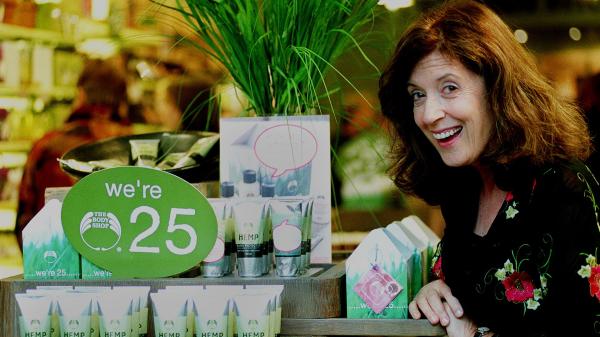The beauty of its natural ingredients, reusable bottles and stand against animal testing was such that even L’Oréal could not resist the allure of the Body Shop (Alexandra Frean writes). Now, however, 40 years ago after Anita Roddick launched the brand from her kitchen table, and a decade after the world’s largest cosmetics company bought it, that fresh-faced appeal seems to be fading.
L’Oréal is considering a €1 billion sale of the British skincare brand, which it bought in 2006 for £652 million to gain a foothold in the market for natural cosmetics — prompting Roddick, who died a year later, to declare that she was not “selling out”.
However, the Body Shop has been struggling for years amid mounting competition for natural cosmetics and a growing appetite for scientifically based “active” skincare products. Its sales for the first nine months of last year fell 0.5 per cent to €599.5 million on a like-for-like basis, while sales in the L’Oréal group, whose brands include Lancôme, Garnier and SkinCeuticals, grew by 4.7 per cent. The French group attributed the Body Shop’s soft results to “difficulties in certain major markets, such as Hong Kong and Saudi Arabia, along with the investment efforts made to reaccelerate the brand”.
L’Oréal, which was rumoured to be offloading the Body Shop once before, in 2012, is working with Lazard to review its options for the chain, which has more than 3,000 stores in 66 countries, according to the Financial Times. An outright sale is among the most likely outcomes.
L’Oréal is expected to announce a strategic review of the Body Shop as early as today, when it is due to announce its full-year results for last year.
Roddick and her husband Gordon borrowed £4,000 from an acquaintance, Ian McGlinn, to expand the Body Shop in 1976 after the couple’s bank had rejected a request for a loan on the grounds that the business idea was not viable. The couple made £117 million from the L’Oréal deal, while Mr McGlinn made £137 million.
L’Oréal has been increasing its “active” and “prebiotic” skincare products, a segment seen as having huge potential in the American market. In January it bought three skincare brands, CeraVe, AcneFree and Ambi, for $1.3 billion from the Canadian pharmaceuticals company Valeant.
L’Oréal shares rose 1 per cent to €173.35 in Paris.
The company declined to comment.

